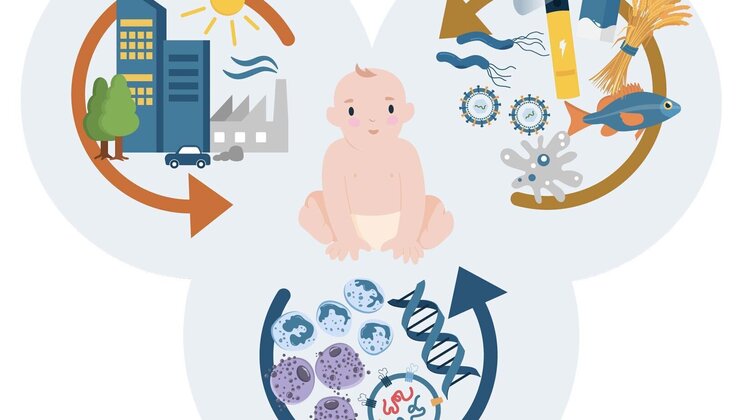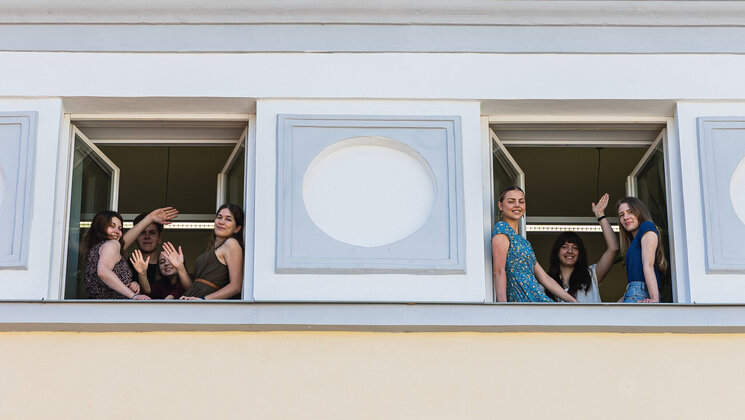Come to listen to short lectures by doctoral students and choose your favourite!

Once a year, the University of Tartu three-minute thesis competition offers everyone the opportunity to get a good overview of the research of doctoral students of various disciplines, and to choose their favourite. Topics range from diagnosing cancer to artificial intelligence and from genomics to economy and religious studies. The public event takes place on Thursday, 28 September, starting at 10, in the conference hall of the University of Tartu Library.

Young researchers participating in the competition will introduce the content and relevance of their research to a diverse audience in a smooth and engaging three-minute popular-science presentation. The event will be held in two languages and in two parts: first presentations in Estonian and then in English. At the end, there will be a joint award ceremony and the audience favourite will be announced.
The three best Estonian presenters will have the opportunity to represent the University of Tartu at the Estonian Academy of Sciences' "Science in Three Minutes" competition. The video recording of the best English presentation will be sent to the 3-Minute Thesis competition of the international university network Coimbra Group.
Everyone is welcome to listen to doctoral students' presentations and cheer for their favourites!
10:00–10:10 start of the competition, opening words by Vice Rector for Research Mari Moora
10:10–11:00 Estonian competition
11:00–11:10 opening words of the English competition
11:10–12:50 English competition
12:50–13:15 show debate by University of Tartu debate club “A PhD does more harm than good”
13:15–13:30 award ceremony: the jury announces the top three of the Estonian and English competitions and the audience favourite
- Agnes Pristy Ignatius Xavier, Institute of Physics
“Holographic Non-Invasive Cancer Diagnosis with Heat Waves” - Arun Kumar Devarajan, Institute of Molecular and Cell Biology
“Rice Resilience: Harnessing Microbial Allies for Drought Tolerance” - Baiba Brumele, Institute of Technology
“TRMT112 – the mysterious link between different diseases” - Danat Yermakovich, Institute of Genomics
“Evolutionary history of complex human traits” - Elchin Aghazada, School of Economics and Business Administration
“The Dating Game: Companies, Institutions, and the Flirt with Innovation” - Eleri Lillemäe, Institute of Social Studies
“Philosopher’s stone and military sociology” - Francis Gracy Arockiaraj, Institute of Physics
“Computational Imaging Through Optical Chaos (CITOC)” - Isaac Okiti, Institute of Ecology and Earth Sciences
“Wetland Restoration and Management Strategies” - Ivan Kuznetsov, Institute of Genomics
“To move, or not to move – genes might give you the answer” - Kateryna Pantiukh, Institute of Genomics
“Beyond the Microbiome: Solving the Puzzle of Unseen Gut Microbial Genomes” - Katrina Daila Neiburga-Vigante, Institute of Biomedicine and Translational Medicine
“RNA – a puzzle piece towards clarity in rare diagnosis” - Miriana Maio, Institute of Philosophy and Semiotics
“Some animals know that they know nothing” - Natalia Kovyliaeva, Johan Skytte Institute for Policy Studies
“Gaining Voice Despite Repressions: Grassroots Feminist Strategies of Resistance in Putin’s Russia” - Shivasubramanian Gopinath, Institute of Physics
“Incoherent Hybrid Imaging System (INCHIS) – A new pathway to tune image resolutions of any recorded pictures and videos” - Tairi Leis, School of Economics and Business Administration
“Journey to the promised land” - Yaroslav Opanasenko, Institute of Education
“Strategies of interaction with E-Books in Estonian schools: a sequence analysis study” - Yehor Yatsiuk, Institute of Ecology and Earth Sciences
“What is in tree cavities?”
- Hanna Britt Soots, Institute of Mathematics and Statistics
“Matemaatika aitab maailmast paremini aru saada” - Kristiina Kurg, Institute of Technology
“Melanoomi diagnoos vaid veretilgast – kas see on tõesti võimalik?” - Laura Mauring, Institute of Clinical Medicine
“Geneetilised silmahaigused: vaenlane pimeduses” - Martin Haamer, Institute of Ecology and Earth Sciences
“Kas bussisõit peabki aeglane olema?” - Mikk Tooming, Institute of Clinical Medicine
“Täites lünkasid: rinna- ja munasarjavähi geneetilised muutused Eestis” - Renno Raudmäe, Institute of Technology
“Avatud riistvara kui kõrgtehnoloogilise ühiskonna arenguvedur” - Robert Bunder, School of Theology and Religious Studies
“Teoloogiline mitmekesisus Eesti Evangeelse Luterliku Kiriku vaimulike seas” - Tairi Leis, School of Economics and Business Administration
“Nõiutud mets”
The competition is organised by the University of Tartu's Office of Academic Affairs, Marketing and Communication Office and International Cooperation and Protocol Office.






